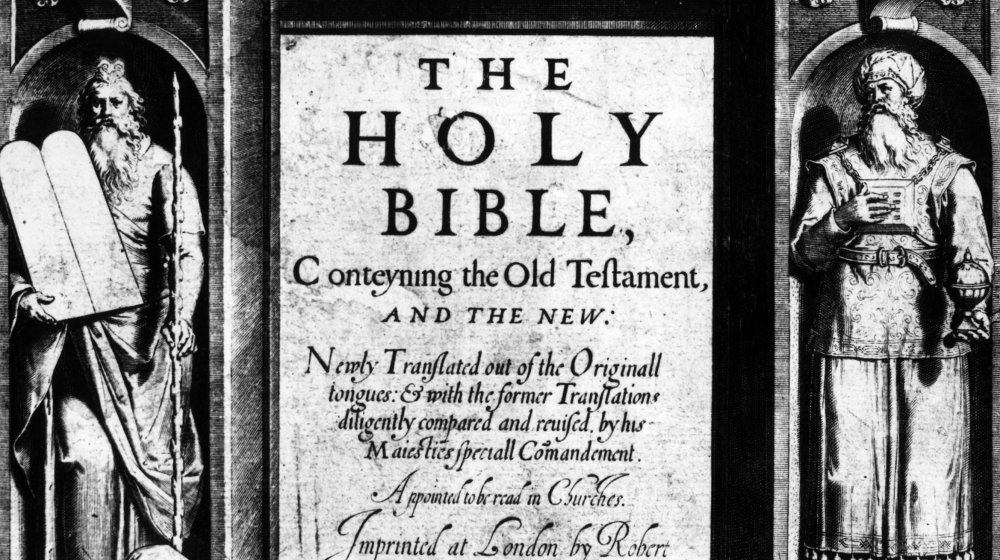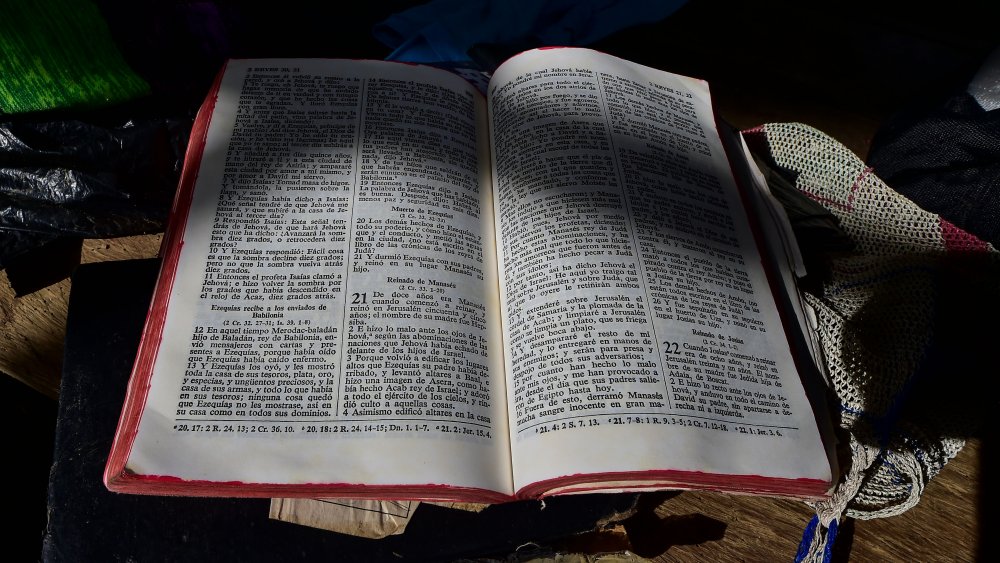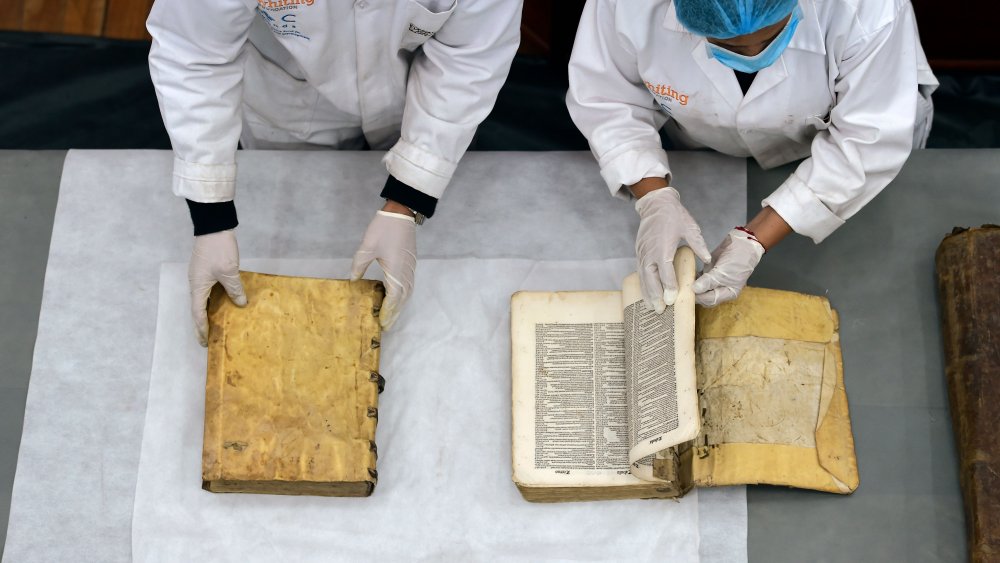The Real Reason The Book Of Enoch Isn't In The Bible
Like with most freelance writing projects, the Bible had plenty of excited contributors and a finite amount of space. Not everything could make the cut. Big ticket mysteries like the Infancy Gospels, the Odes of Solomon, and banger of bangers, the Epistle of Ignatius to the Smyrneans, all wound up disappearing completely from the final product.
One of the more conspicuously absent members of the list is the Book of Enoch, an ancient Hebrew text purportedly penned by the great-grandfather of Noah and seventh generation descendant of Adam. Enoch lived a short life by Old Testament standards, giving a "Good day, sir" to his mortal coil at just 365 years young. Still, as one of the pre-deluge patriarchs, you'd think that it would be a good idea to keep a copy of his thoughts on matters, even in the face of his puckish, youthful, tri-centennial point of view. So why didn't the Book of Enoch make it into the Bible proper?
Too much, or just Enoch?
You know how every couple of years, comic book companies will do a hard reset on their characters so they won't have to keep up with complicated, alienating canon? That might be a good starting point.
The Book of Enoch contains several sections, including a portion called the Book of the Watchers. Here, the author details Enoch's vision of heaven and the fall of a subsect of angels who would go on to interbreed with human beings, creating a race called the Nephilim: supernatural, man-eating, cannibalistic, vampiric giants. It was all very hat-on-a-hat. Other additions included the angel Azazel teaching humans how to make swords, God's orders to have the rebelling angels bound and imprisoned, and a long-winded explanation for why the Great Flood was a pretty cool idea.
Needless to say, there were a lot of big thoughts and at least a couple of hot screenplay concepts in there. But grand ideas get you grand opposition, and early theologians branded some of Enoch's ideas as heretical. According to the Encyclopedia Britannica, of particular concern were prophecies involving the birth of a messiah, which didn't sit well with the Jewish community. That, surprisingly, seems to be what got the ball rolling on ditching the texts, not the inclusion of blood-sucking kaiju monsters.
Don't Enoch it til you've tried it
Still, you can't keep a good religious text down, and there are still a few denominations of Abrahamic faith that treat the Book of Enoch as canonical. Ethiopian Jews still treat its teachings as gospel, and the writings have a long history in the region, with the only pre-modern copy of the text having been written in ancient Ge'ez, an old African language.
Fragments of the Book of Enoch have made their way into mainstream religion, however. Jude 1:14-15 has a particularly familiar piece of writing: "...Behold, the Lord cometh with ten thousands of his saints, To execute judgment upon all, and to convict all that are ungodly among them of all their ungodly deeds which they have ungodly committed, and of all their hard speeches which ungodly sinners have spoken against him."
Compare that to Enoch's version which, translated from Ge'ez, reads "And behold! He cometh with ten thousands of His Saints To execute judgment upon all, And to destroy all the ungodly: And to convict all flesh Of all the works of their ungodliness which they have ungodly committed, And of all the hard things which ungodly sinners have spoken against Him." It's the sort of copy-pasting that gets folks thrown out of community college, but luckily, Moses never bothered to write down "thou shalt cite your sources," so Jude got away with it. Depending on your read on the situation, you could even say he took a sad psalm and made it better.
Just can't get enoch
Other portions of the Book of Enoch were found among the Dead Sea Scrolls, which, if you're unfamiliar, are sort of the hip, obscure B-sides of the Bible that didn't make it into the studio edit. Some of the other writings that got voted out included the Wisdom of Sirach, a stream-of-consciousness, beat poetry approach to Judaism. There was The War Scroll, which reads like Sun Tzu by way of Revelations, and the Book of Jubilees, which has disappointingly little to do with '90s-era X-Men cartoons. Other portions of the Dead Sea Scrolls had better luck finding a forever home, with the Book of Tobit managing to get its foot in the door in Catholicism and the Eastern Orthodox Church.
Prequel to the sequel
Whether the Book of Enoch, or any of the other apocryphal texts, should have made it into the Bible is a question that scholars will likely still be debating long after we're all dead. Maybe that, more than anything, is why we, the lay folk, should leave those arguments to the experts and go back to discussing subjects that are more in our own lane, like which new actor is going to ruin the Batman franchise and whether or not ranch goes on fries.




